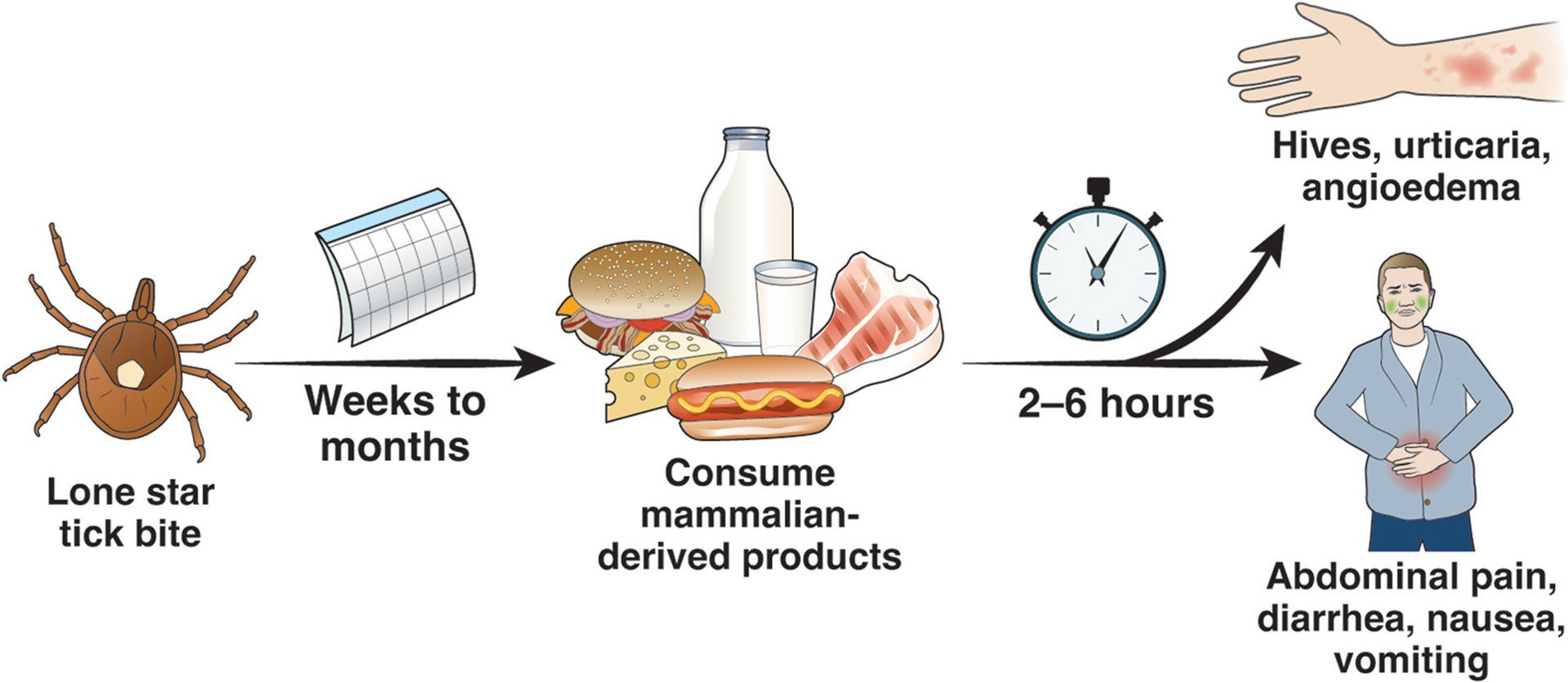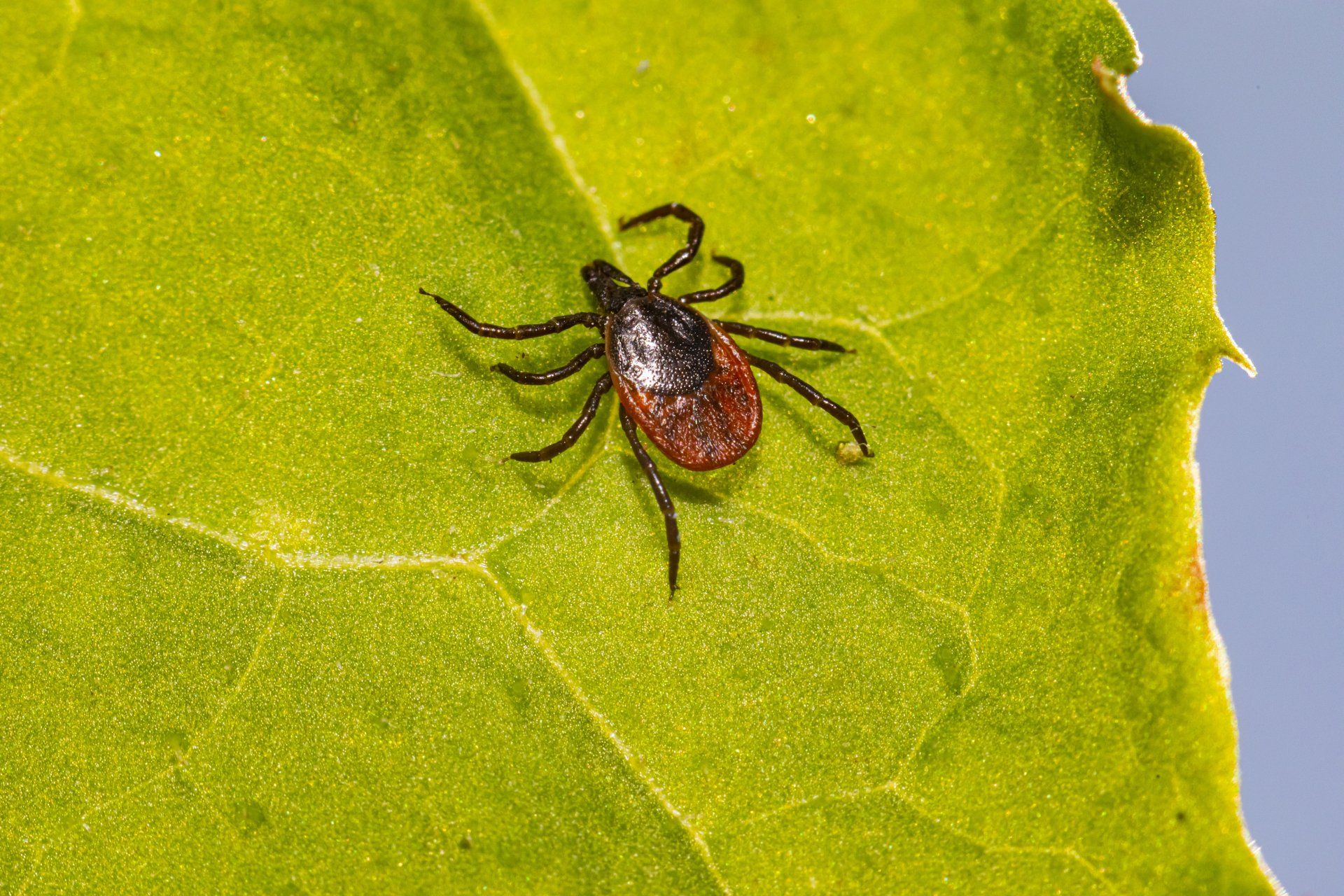Alpha GAL Syndrome
Alpha-Gal Syndrome (AGS) is an allergic reaction to a sugar called galactose alpha-1,3-galactose (alpha-gal for short). It is found in the cells of non-primate mammals such as cows, pigs, & sheep. The allergy is usually triggered by the bite of the Lone Start tick (Amblyomma americanum). Not everyone who is bitten by the tick will develop AGS. Because the Lonestar tick is very common here in southern Missouri, tick bite prevention is very important to prevent triggering AGS or other conditions caused by the tick.
After a tick bite, it can take 1-3 months for a person’s immune system to become sensitive to alpha gal. The person’s body sees alpha gal as an “invader” that should not be there and makes lots of antibodies to fight the “invader” if it is exposed to alpha gal again. If the person eats foods with alpha gal after this, their body will try to fight off the “invader” by releasing lots of antibodies, resulting in symptoms of an allergic reaction.
In AGS, symptoms usually develop 2-6 hours after eating foods containing cow, pig, or sheep products.
The most common symptoms of AGS include:
· abdominal pain
· diarrhea
· nausea
· vomiting
· hives
More serious or life-threatening symptoms such as signs of anaphylaxis can be seen such as:
· low blood pressure
· swelling of the face (lips, tongue, nose, eyelids)
· airway inflammation
· difficulty breathing
AGS can be difficult to diagnose because it shares similar symptoms with more common conditions such as gasteroenteritis (sometimes called a “stomach bug”) or more common food allergies. Additionally, a person or parent of an affected child may not remember being bitten by a tick weeks or months before their symptoms begin. Traditional skin-prick allergy testing is not recommended as there may be a high amount of false positives (when a person has a positive test but does not have the condition) or false negatives (when a person shows no reaction or only a very mild reaction with a skin test even though they may have the condition) [2, 3]. A blood test to look for high levels of IgE antibodies against alpha gal for cow, pig, and lamb is currently the preferred way to diagnose AGS.
AGS is a newer condition that we are still trying to understand. Scientists are still trying to find out why some people develop AGS and why it occurs after a tick bite. It can affect people of any age but tends to be rarer in children than in adults. This is different from other food allergies that tend to be more common in childhood and then improve as the person gets older. More research needs to be done to see if a person is more likely to develop AGS if they have a close relative who has AGS.
There is no cure for AGS. Prevention of tick bites during outdoor activities is important to minimize AGS and diseases spread by tick bites. For immediate symptom relief, antihistamines (such as Benadryl) or epinephrine (such as an epinephrine pen injector) can be used. Avoiding eating beef, pork, and lamb meat or products derived from these animals is recommended to prevent the allergic reactions from occuring in the long run.
For more information check out:
American Academy of Allergy Asthma & Immunology
CDC Alpha Gal Syndrome webpage
CDC list of foods & products that may contain Alpha Gal
Bethany Thompson-Gordon MS3 University of Missouri School of Medicine Springfield Clinical Campus












